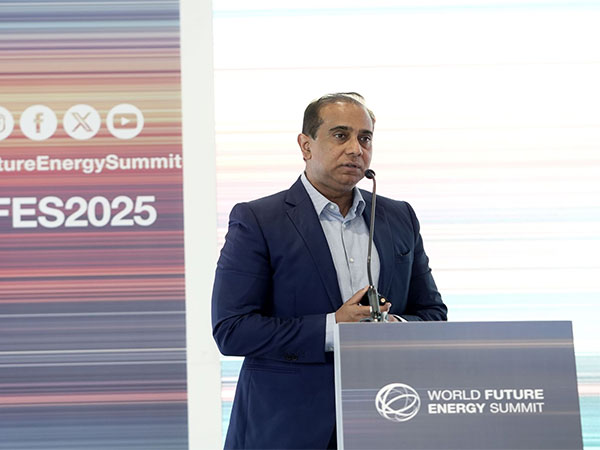UAE Leading the Charge in Solar Energy Revolution by 2030
The UAE is spearheading solar energy advancement in the MENA region, with strategies like the Dubai Clean Energy Strategy 2050 and Abu Dhabi Vision 2030. A report from MESIA notes significant solar capacity growth, innovative technologies, and renewable energy goals bolstered by public-private efforts, positioning the region for a sustainable future.

- Country:
- United Arab Emirates
A new report underscores the UAE's front-runner status in regional solar energy, crediting initiatives such as the Dubai Clean Energy Strategy 2050, which targets 75% clean energy by mid-century, and Abu Dhabi Vision 2030, which aims for 30% renewable energy in five years. Released by the Middle East Solar Industry Association (MESIA) during the 2025 World Future Energy Summit in Abu Dhabi, the 'Solar Outlook Report 2025' elaborates on the UAE's pivotal role in the burgeoning solar market across the Middle East and North Africa (MENA).
Solar power has seen its share in the energy mix soar, with MENA's solar capacity growing by 23% in 2023 to reach 32 gigawatts (GW) and projected to surpass 180 GW by 2030. This expansion is fueled by technological advancements, state backing, and private investment, with innovations like digital twins and automated cleaning revolutionizing solar plant operations by boosting energy output and cutting costs. Additionally, progress in energy storage and automated processes are overcoming obstacles in the sector's expansion.
The report identifies green hydrogen as a rapidly developing area, noting MENA's rich solar and wind resources offer a competitive advantage. Despite challenges such as funding and infrastructure, ongoing regional commitments and market developments are creating new opportunities. Localization of solar manufacturing and reducing foreign dependency are crucial for future success. Countries like Morocco, Egypt, and Tunisia are ramping up solar efforts to satisfy local requirements and support global clean energy targets.
According to MESIA President Fazle Moyeen Quazi, next-gen technologies are enhancing solar project resilience and efficiency, tackling issues like intermittency and grid stability. The report highlights advanced solar cells, grid integration tools, and digital monitoring, which are improving efficiency, while private investments, public-private collaborations, and innovative finance models accelerate solar adoption.
Leen AlSebai, head of the World Future Energy Summit, emphasized the summit's vital role in connecting global stakeholders, thereby fortifying the MENA region as a preeminent solar market.
(With inputs from agencies.)










